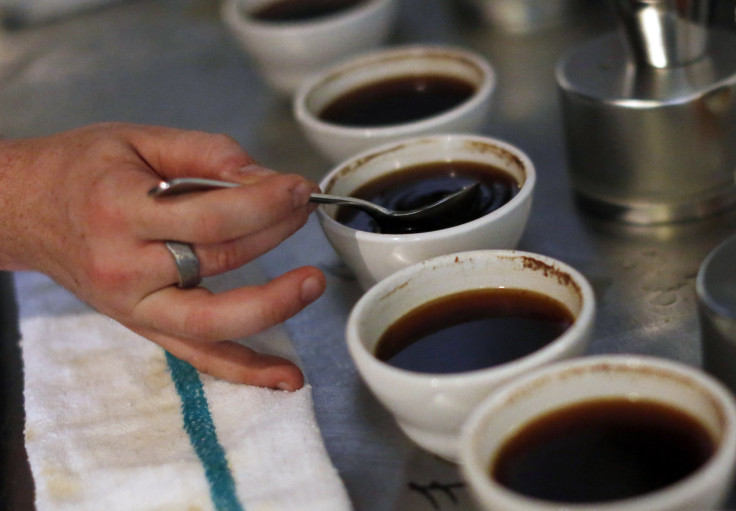You Should Drink More Coffee: The Health Benefits Of Your Morning Cup Of Joe

Studies of the health benefits of coffee -- much like studies of the health benefits of red wine -- are as eagerly consumed as that morning cup of brewed goodness. Along this line, a new study found a possible association between coffee consumption and reduced risk of multiple sclerosis. The study adds evidence to the hypothesis that coffee may help protect the brain.
Led by Dr. Ellen Mowry, an assistant professor of neurology at the Johns Hopkins University School of Medicine, the researchers analyzed data generated by two studies, one in Sweden and the other in the U.S. The Swedish study focused on 1,629 individuals with MS and 2,807 individuals without it, while the American study focused on 1,159 individuals with MS and 1,172 without it. Both studies compared coffee consumption one and five years before the beginning of symptoms in those with MS and similar time periods for those without it. They also monitored variables such as age, body mass index, exposure to the sun, sex and smoking.
In addition, the Swedish study had coffee-consumption data going back 10 years before the beginning of symptoms in those with MS.
In the Swedish study, a comparison of people who did not drink coffee with people who drank six or more cups of coffee a day during the year before symptoms appeared showed members of the former group had a greater risk of about 1.5 times of developing MS than did members of the latter group, the researchers reported.
In the U.S. study, a comparison of people who did not drink coffee with people who drank four or more cups of coffee a day during the year before symptoms appeared showed a very similar divergence in the risk of developing MS between the two groups, the researchers said.
“Caffeine intake has been associated with a reduced risk of Parkinson’s and Alzheimer’s diseases, and our study shows that coffee intake may also protect against MS, supporting the idea that the drug may have protective effects for the brain,” Mowry said in a statement. The research will be presented at the American Academy of Neurology’s 67th annual meeting in April.
News of the possible association between coffee consumption and reduced risk of multiple sclerosis came on the heels of the latest dietary guidelines issued by the U.S. Department of Health and Human Services and Department of Agriculture that indicate we should drink coffee. The guidelines suggest moderate consumption, between three and five cups, has plenty of health benefits, such as reduced risk of Parkinson’s disease, Type 2 diabetes and cardiovascular disease.
Meanwhile, a previous study also associated with Johns Hopkins indicated caffeine could act as a memory booster as it helped strengthen long-term memory. The Harvard T.H. Chan School of Public Health has a good roundup of recent studies exploring the health benefits of coffee.
Another extremely important coffee study was published in the journal Physics of Fluids Feb. 24: The researchers figured out why a latte is less likely to spill than is a regular coffee. It’s all about the foam preventing the sloshing to and fro, which is a good tip for those who may be accident-prone and in proximity to a personal computer, its keyboard and its display.
Next time you need a caffeine boost, remember you may also be improving your health.
© Copyright IBTimes 2024. All rights reserved.












